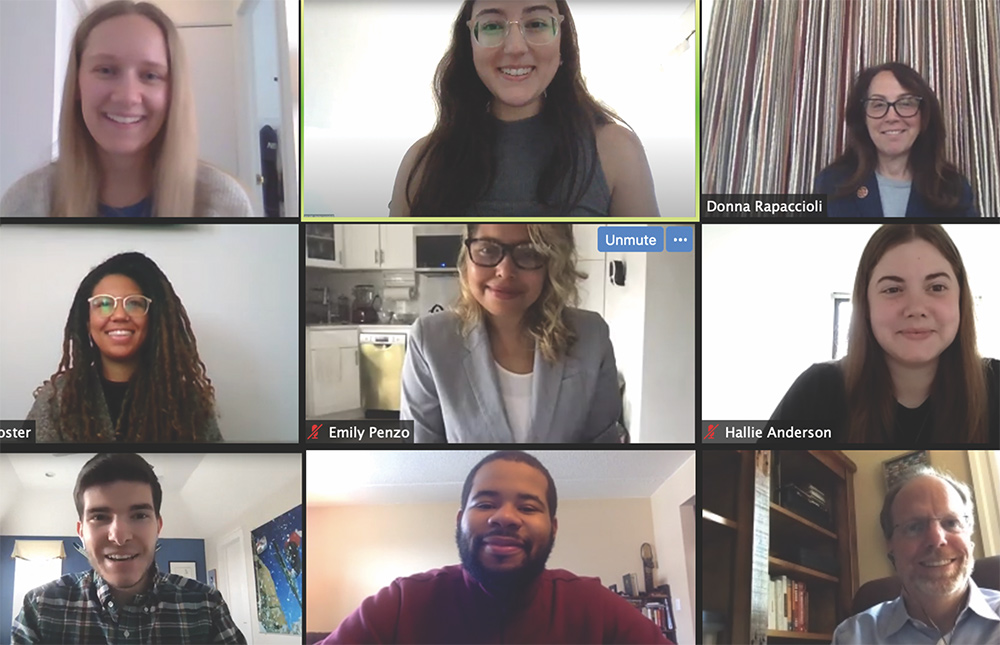Learning Virtually During COVID-19
o matter the business, agility is key to preparing for the unexpected. As Fordham’s campus life transitioned off site for the spring due to COVID-19, the Gabelli School community, like organizations worldwide, had to rapidly adapt.
The first change entailed ensuring instructors could use virtual platforms including Zoom, Adobe Collaborate, and WebEx starting March 11, when all courses moved online for the remainder of the semester.
“Given what I teach—entrepreneurship—and that I teach in a rather nontraditional way, it was pretty easy to shift to Zoom and keep rolling,” said Christine Janssen, Ph.D., clinical associate professor in the leading people and organizations area.

However, he realized that “just as we had to learn how to teach online, students had to learn how to learn online.” To encourage class discussion and engagement, Johnson used Zoom tools such as polls and virtual breakout rooms.
The adaptations didn’t end in the classroom—events also had to be flexible.
Featuring speakers from three different countries, the Gabelli School’s virtual International Business Week presentations explored the pandemic’s effects on global business. Another yearly event, the Fordham Foundry’s 4th Annual Pitch Challenge, found students and alumni presenting business pitches via Zoom to judges spanning the country, as well as a livestream audience. Thanks to a sponsorship from Adobe, winning pitches were awarded $25,000 in prize money.
Despite event cancellations across the nation, the Gabelli School’s 7th Annual Deloitte March Data Crunch Madness Competition continued, with 18 interdisciplinary graduate teams competing in a virtual data-analysis event. Additionally, this year’s Social Innovation Day also took to Zoom, drawing six times as many people as usual, who streamed conversations on social innovation research, pedagogy, and practice.
Reflecting on the spring’s online learning experiment, Johnson said one lasting takeaway is the importance of establishing human connections. To that end, the Gabelli School launched its #GabelliConnected Instagram initiative, a series of videos by students and staff that shared skills from cooking to meditation to mask-making.
While the future may be unknown, for Janssen, it brings excitement. “We need to prepare ourselves to be über agile to keep teaching students no matter what the circumstances are,” she said. “I find that a fun challenge.”